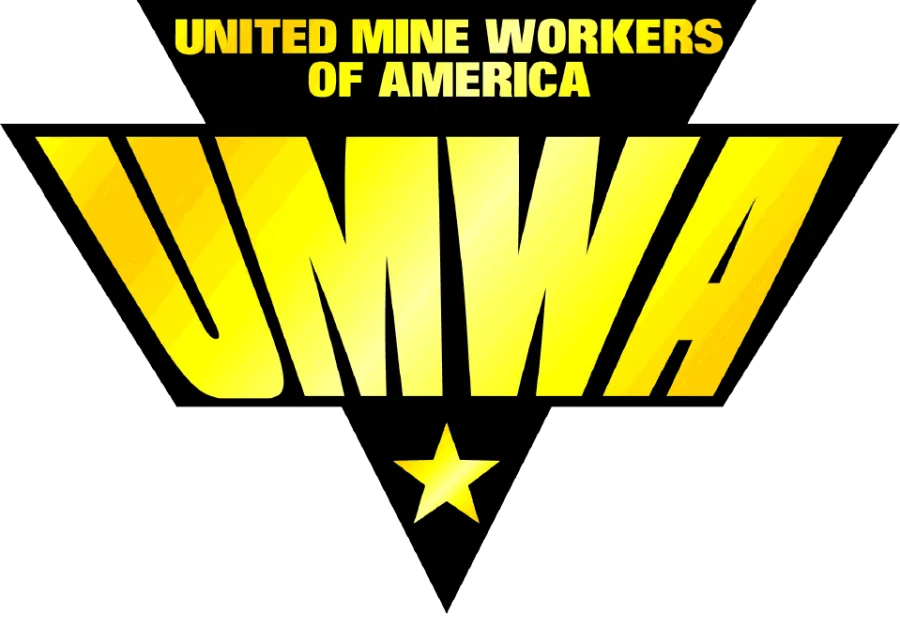Our Union Heroes: William Joseph Campbell

EDITOR'S NOTE: A national AFL-CIO website says "the AFL-CIO works to achieve one goal: A better life for working people." This story continues "Our Union Heroes" series which highlight outstanding Kentucky trade unionists whose careers reflected that goal. It is hoped that one day the Kentucky State AFL-CIO can create a Kentucky Labor Hall of Fame to permanently honor our union heroes.
By BERRY CRAIG
Alliance for Retired Americans
Muhlenberg County's William Joseph Campbell "played significant roles as a labor organizer and political operative in local, state and national labor and political activities," wrote Lee Durham Stone in Across the Kentucky Color Line: Cultural Landscapes of Race from the Lost Cause to Integration.
Yet because he was Black, Campbell "remains erased and invisible in the historical record," Stone added.
In 1894, Campbell moved to Central City from Alabama, his home state, with his wife Sallie. He was born in 1863, when Alabama was a Confederate state. His family was poor, yet it isn't clear if the Campbells were enslaved. But few Black Alabamians were free.
After the Civil War, he worked as a teacher and a barber before becoming a coal miner and joining the United Mine Workers of America. "W. J. Campbell fought for improved race relations in coal towns and for interracial unions," says the University of Kentucky's Notable Kentucky African Americans Database online.
Before the UMWA was formed in the 1890s, Campbell belonged to the Knights of Labor, an ancestor of the AFL-CIO. The Knights had Black members and “tried to teach the American wage-earner that he was a wage-earner first and a bricklayer, carpenter, miner, shoemaker, after; that he was a wage-earner first and a Catholic, Protestant, Jew, white, black, Democrat, Republican, after,” historian Norman J. Ware wrote.
In 1881, Campbell was elected secretary of an Alabama K of L branch. "A year later, he was organizer-at-large, and established the first Knights of Labor [branch] in Birmingham and Montgomery. He established the beginnings of the United Mine Workers and the Federation of Mine Laborers, Division 10, in Chattanooga, TN. The division included Alabama, Tennessee, and Kentucky," according to the database.
White supremacist Democrats dominated politics in Jim Crow Alabama, where segregation, race discrimination and Black voter suppression were the law and the social order. The Ku Klux Klan and other terrorist groups targeted Blacks. They threatened, murdered and burned the homes of Blacks considered threats to the white powers-that-be.
Naturally, almost all Blacks embraced the GOP "Lincoln and Liberty." Even so, it was especially risky for Blacks to try to vote the Republican ticket or join the party. White Democrats, many of whom were Confederate veterans, hated the "Black Republican Party" that had led the Union to victory in the Civil War and amended the constitution to end slavery, make Blacks citizens and extend the vote to Black men.
Undaunted, Campbell joined the state's tiny hard-pressed GOP, which was then largely a coalition of Blacks and poor whites. (Today, most Blacks vote Democratic because the Democrats are the party of civil rights activism. Most Democrats are also pro-union. Almost all Republicans side with employers over unions and the GOP is largely what the Southern Democrats of Campbell's era were: a conservative white people's party.)
Explains the database: "He was the elected secretary of the Republican Committee of Jefferson County, AL, in 1882 and was also an elected delegate to the Republican State Convention. In 1892, he was an elected delegate-at-large to the Republican National Convention for Alabama."
After he and his wife moved to Central City, they discovered that though Kentucky was a loyal border slave state during the Civil War, it afterwards became part of the Jim Crow South. Segregation was rigid and white supremacist Democrats dominated state politics.
Campbell switched to the Kentucky GOP, which also welcomed Blacks but was white run. He continued to work as a miner and barber while his wife taught "at the Colored common school," the database said. He also started branches of the Republican National League. "But it is not clear whether they were integrated organizations," Stone wrote.
Campbell "was a delegate to the National Republican League Convention, and in 1901 was a member of the Republican State Campaign Committee," the database says.
"In 1898, he drafted legislation – the Miners Pay Bill – passed by the Kentucky General Assembly," Stone wrote. "The law required timely wage disbursements (by the 16th day of each month) and interest paid on late company payments." The law "also prohibited the requirement (and coercion) that miners buy from the company or other stores."
Even so, "interracial organizing was the activity for which Campbell became primarily known," Stone added.
"Significantly, the UMWA Constitution barred racial, religious, and ethic discrimination," he noted. "Campbell may deserve some credit [because of]... his dedicated interweaving of political and organizational work at the national level."
Campbell continued to rise in GOP and UMWA ranks. UMWA District 23 miners sent him to the UMWA national convention in 1900. The next year, he was elected District 23 secretary-treasurer, Stone wrote, adding that Campbell may have been the first Black person in the country elected to such a position.
In 1904, Campbell joined the national UMWA administration of President John Mitchell, says the database. "He was also president of [the] Afro American National Protective Union, which sought to organize a National Labor Union. In 1912, Campbell would serve as president of the National Negroes' Industrial and Protective Union of America."
The Campbells ultimately moved to Drakesboro, where he died in 1912 at age 49. "UMWA District 23 erected and inscribed a large granite monument" over his grave, Stone wrote.